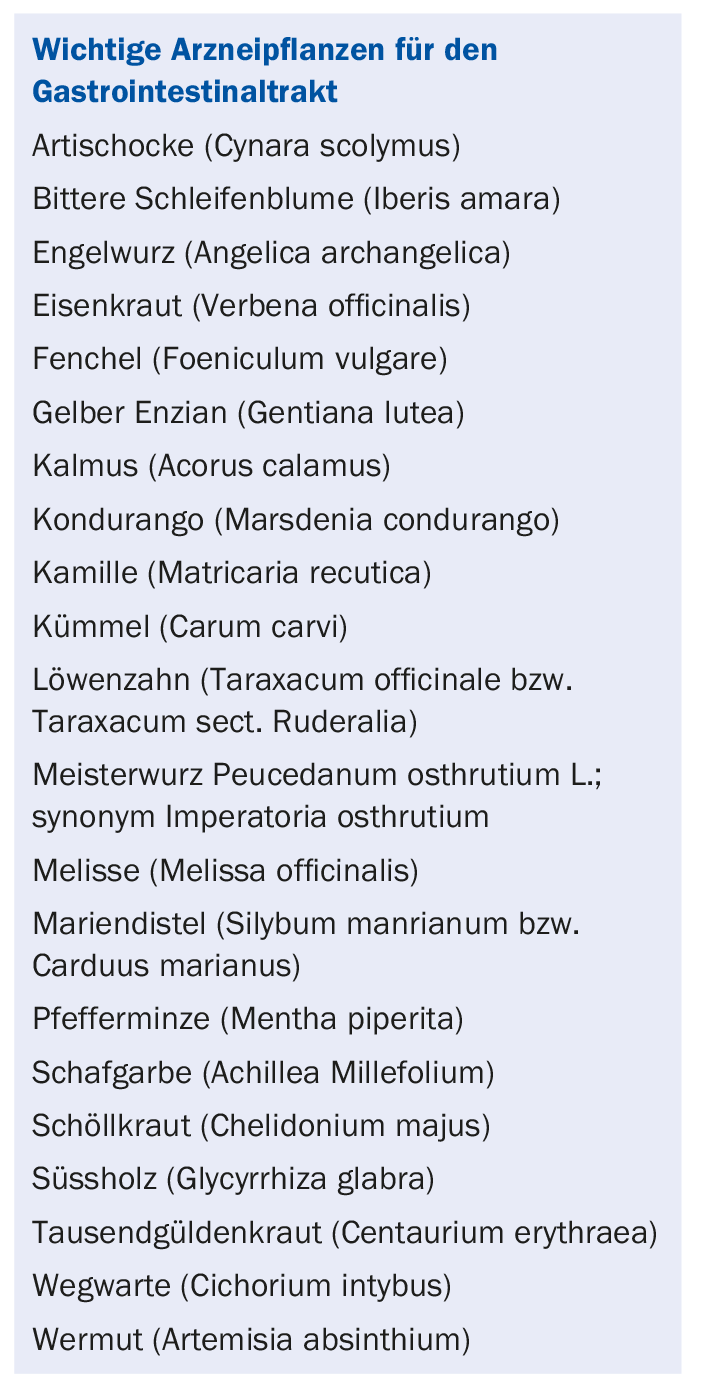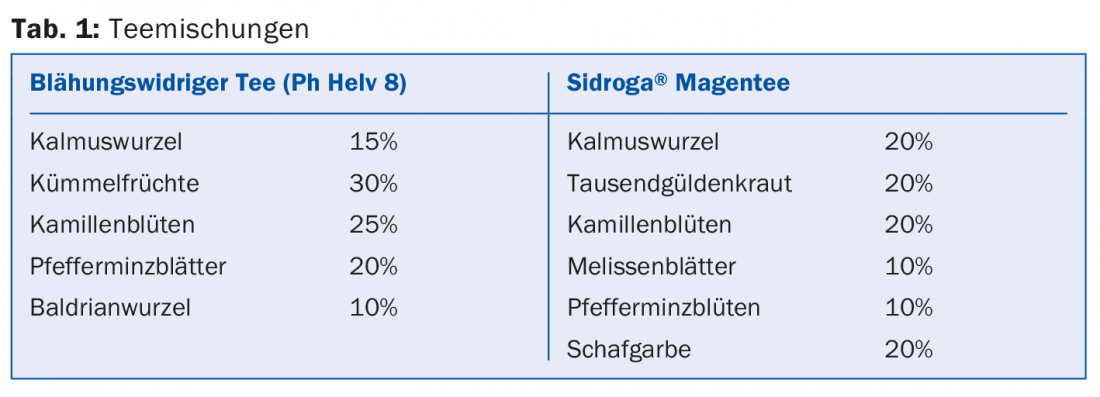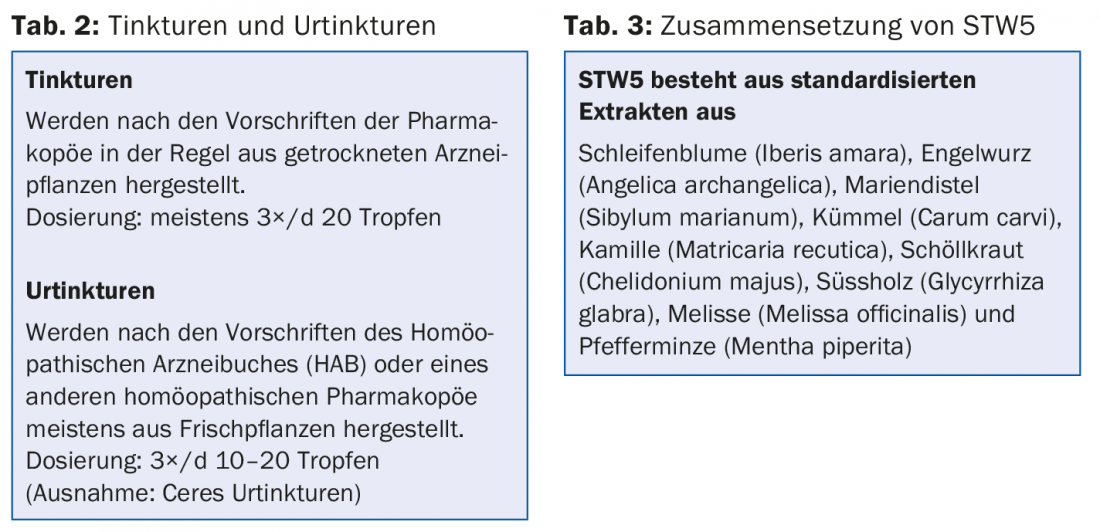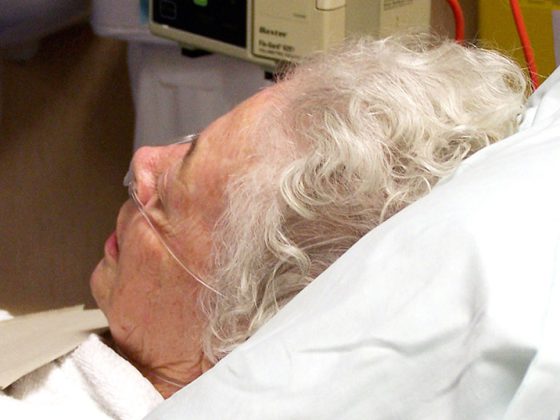This article highlights the many ways in which gastrointestinal complaints can be treated with herbal applications. There are tea mixtures, tinctures and also ready-made herbal preparations, some of which have clinical studies to prove their effectiveness.
Gastrointestinal complaints are among the most common reasons for visiting a doctor. Today, proton pump inhibitors occupy a dominant position in the treatment of various gastrointestinal complaints, especially when dyspepsia is involved. However, gastrointestinal complaints already occurred in our ancestors, and the doctors or other healers of the time knew strategies from nature to treat people plagued by discomfort.
There are a variety of medicinal plants that can be used to treat digestive tract conditions (box).

Tea blends
In earlier times, medicinal plants were used primarily as tea. However, tea mixtures are largely neglected by modern medicine. Nevertheless, there are still a large number of tea mixtures for digestive problems. Two examples are mentioned in Table 1 .

The tea blend of the Swiss Pharmacopoeia 8 has an anti-flatulent and calming effect, the stomach tea Sidroga
®
is effective for various gastric complaints.
The efficacy of these two and two other tea mixtures registered in Switzerland was verified in a study conducted by the Swiss Medical Society of Phytotherapy (SMGP) [1]. According to the assessment of the treating physicians and patients, 74% of patients with primary dyspeptic complaints experienced a significant improvement of symptoms with the use of these tea mixtures. Because of the very good tolerability and due to hardly occurring side effects, these tea mixtures are very suitable for the treatment of corresponding complaints.
Drop
Besides tea mixtures, the medicinal plants listed above can also be taken as drops. Various pharmaceutical companies offer tinctures or mother tinctures (Tab. 2). The ingredients of a medicinal plant are dissolved in alcohol. Usually one takes 20 drops 3×/d. The mother tinctures of the company Ceres Heilmittel AG are an exception. A special manufacturing process allows to take these mother tinctures in a dosage of 3×/d 3-5 drops.
Finished preparations
There are also a number of herbal ready-to-use preparations for the treatment of gastrointestinal tract complaints. Several of them have proven their effectiveness in clinical trials. In the following, some of them will be presented.
STW5: STW5 (is commercially available in Switzerland under the brand name Iberogast® ) are herbal drops consisting of seven different standardized herbal extracts (Tab. 3) used against functional dyspepsia, irritable stomach and irritable bowel. Since 1994, several studies have been published, several of them as double-blind placebo-controlled trials, testing the efficacy of STW in functional dyspepsia [2,3]. Madisch’s study was designed versus placebo, while Rösch’s was STW5 versus cisapride. In both studies, a significant reduction of the gastrointestinal sum score could be determined (Madisch: p<0.01; Rösch: p<0.01). Rösch’s study also demonstrated the equivalence of STW5 to cisapride.

Artichoke leaf extract: Artichoke leaf extract is also used to treat functional dyspepsia. Studies documenting efficacy in functional dyspepsia have been conducted with a standardized aqueous extract (commercially available in Switzerland under the brand name Hepa-S® ) of 320 mg artichoke (Cynara scolymus, DVE 4-6:1) [4,5]. Marakis’ study was designed as an open-label trial, while Holtmann’s was a double-blind placebo-controlled randomized parallel-group trial. In total, over 750 patients participated in these two studies. In Marakis, significant improvement in the identified symptoms was observed in the two treatment groups with 320 and 640 mg artichoke extract/d, respectively. In Holtmann’s study, significant improvement was shown for the majority of parameters identified (fullness, flatulence, epigastric pain, early feeling of fullness) compared to placebo.
Peppermint for irritable bowel syndrome: In Switzerland, a preparation containing peppermint capsules is on the market under the brand name Colpermin®. Because of their special preparation, these capsules dissolve only in the intestine and are approved for the treatment of irritable bowel syndrome. Studies have also been published of this preparation, demonstrating its efficacy in irritable bowel syndrome. However, most of them were published before 2000 [6,7]. Both studies cited were randomized placebo-controlled double-blind trials that demonstrated significant efficacy of the peppermint oil preparation (specifically, the preparation reduced regularly occurring pain episodes) in 30 patients and 42 children and adolescents (Kline).
More applications
Due to space limitations, we cannot discuss here the herbal treatment of vomiting with ginger preparations, of peptic ulcers with oreganum or chamomile, and the many herbal options for constipation and diarrhea.
Summary
This article highlights the numerous herbal strategies that can be used to treat various gastrointestinal complaints – primarily dyspeptic complaints. The efficacy of various preparations has been proven with clinical studies. Therefore, it is worthwhile to use one of the numerous natural preparations for corresponding patients.
Literature:
- Iten F, Meier B, Saller R: Efficacy of tea mixtures in dyspeptic complaints. Researching complementary medicine and classical naturopathy 2002; 9: 277-282.
- Madisch A, et al: A phytotherapeutic agent and its modified formulation in functional dyspepsia. Z Gastroenterol 2001; 39(7): 511-517.
- Rösch W, Vinson B, Sassin I: A Randomised Clinical Trial Comparing the Efficacy of a Herbal Preparation STW 5 with the Prokinetic Drug Cisapride in Patients with Dysmotility Type of Functional Dyspepsia. Z Gastroenterol 2002; 40(6): 401-408.
- Marakis G, et al: Artichoke leaf extract reduces mild dyspepsia in an open study. Phytomedicine 2002; 9(8): 694-699.
- Holtmann G, et al: Efficacy of artichoke leaf extract in the treatment of patients with functional dyspepsia: a six-week placebo-controlled, double-blind, multicentre trial. Aliment Pharmacol Ther 2003; 18(11-12): 1099-1105.
- Schneider M, et al.: Abstract: Efficacy of Colpermin in the treatment of patients with IBS. American Gastroenterology Assoc Meeting 1990.
- Kline RM, et al: Enteric-coated, pH-dependent peppermint oil capsules for the treatment of irritable bowel syndrome in children. J Pediatr 2001; 138: 125-128.
HAUSARZT PRAXIS 2015; 10(4): 3-4











